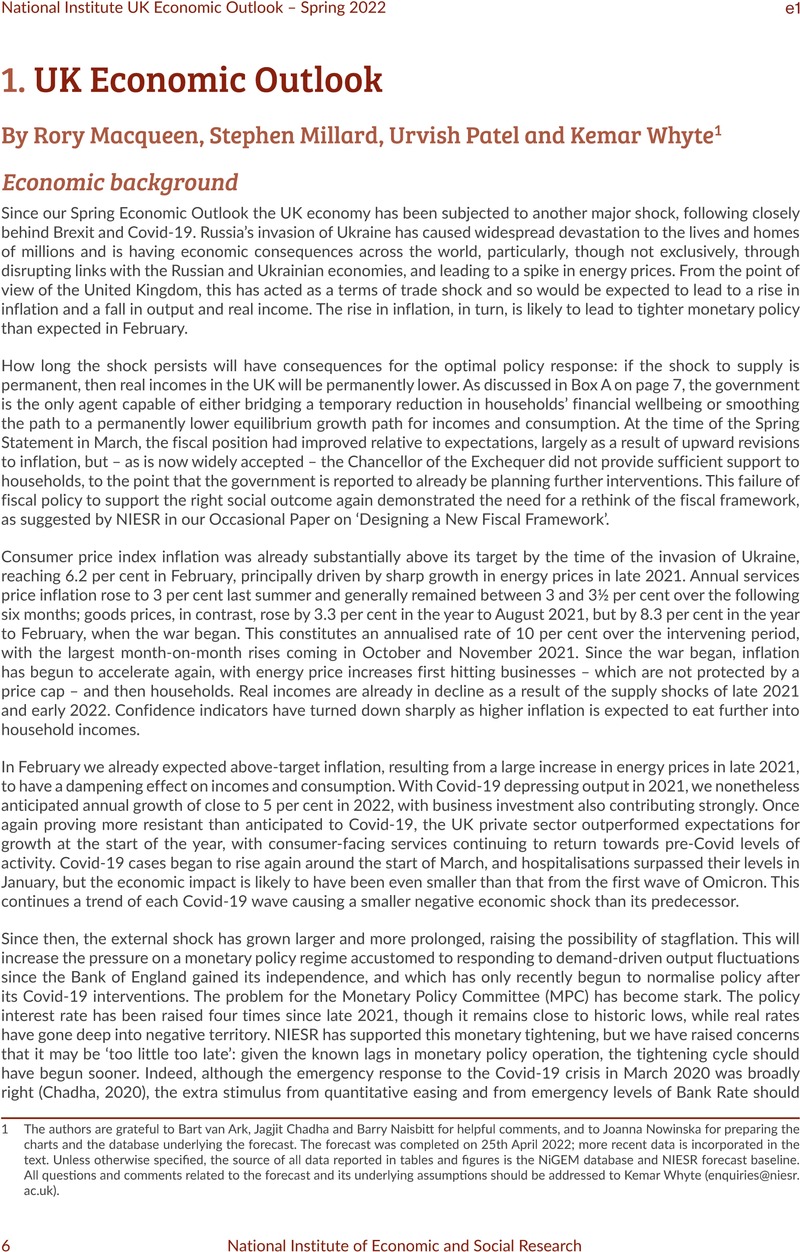Published online by Cambridge University Press: 08 February 2023

The authors are grateful to Bart van Ark, Jagjit Chadha and Barry Naisbitt for helpful comments, and to Joanna Nowinska for preparing the charts and the database underlying the forecast. The forecast was completed on 25th April 2022; more recent data is incorporated in the text. Unless otherwise specified, the source of all data reported in tables and figures is the NiGEM database and NIESR forecast baseline. All questions and comments related to the forecast and its underlying assumptions should be addressed to Kemar Whyte ([email protected]).